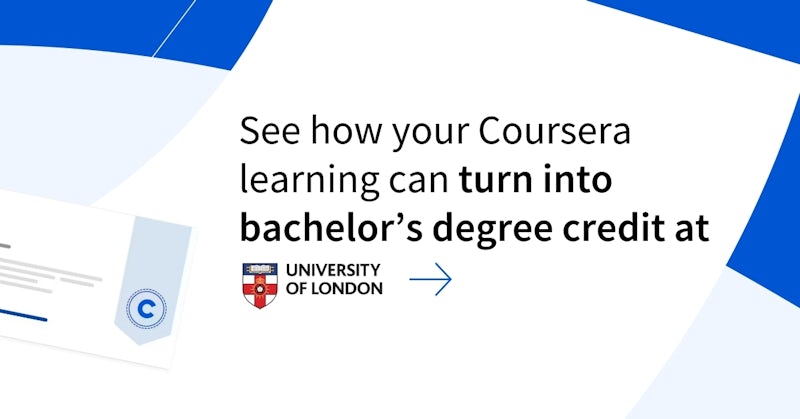Does Computer Science Require Math?
Earning your degree in computer science typically requires taking a number of math courses. Learn more about the kinds of math you can expect and what to do if the subject hasn't always been your strong suit.
![[Feature Image] After learning that not only does computer science require math, but every degree program has its own requirements, an aspiring computer scientist sharpens their math skills.](https://d3njjcbhbojbot.cloudfront.net/api/utilities/v1/imageproxy/https://images.ctfassets.net/wp1lcwdav1p1/3hZi80ZUuK0o9ij80pZ25n/11af8e8462a68932f8fd6306be7eebe9/GettyImages-1938012400.jpg?w=1500&h=680&q=60&fit=fill&f=faces&fm=jpg&fl=progressive&auto=format%2Ccompress&dpr=1&w=1000)
Computer science operates on the language of math. That means earning your bachelor’s degree in computer science will likely require taking several math courses. Of course, the number and kinds of classes will depend on your program.
At its core, math verifies whether certain logical statements are true. As a computer science learner, you will build on that foundation with a series of math classes to sharpen your critical thinking and problem-solving skills while learning to work with related math, such as data sets. To learn more about math's role in computer science, explore the main math courses you can expect to take as a computer science major and whether you should study computer science if math isn’t your strong suit.
What math is needed for computer science?
Each computer science degree program has different mathematics requirements. Programs may require you to take some of the following branches of math and expect you to advance your knowledge of certain mathematical concepts over several semesters. For example, you may need to take Calculus I, followed by Calculus II and Calculus III.
Generally, majoring in computer science requires most of the following:
Calculus
Calculus refers to the study of change within a system, especially concerning functions and sequences. Calculus sets up a framework to model these changes and predict various outcomes and is an excellent math for solving problems.

course
Understanding Research Methods
This MOOC is about demystifying research and research methods. It will outline the fundamentals of doing research, aimed primarily, but not exclusively, at ...
4.6
(8,103 ratings)
371,878 already enrolled
Average time: 6 hour(s)
Learn at your own pace
Linear algebra
Linear algebra is the study of vectors (a list of numbers or functions) and matrices (or a matrix of numbers). It's particularly helpful when organizing large data sets into more concise expressions and modeling the physical world.
Boolean algebra
Boolean algebra is a branch of algebra wherein the values of the variables are either true or false. You denote these values as 1 and 0. In contrast, the values of variables in elementary algebra are numbers.
Statistics and probability
Statistics is the study of verifiable data, including collecting, analyzing, and interpreting it. Probability is the language used to discuss uncertainty, which plays a big role in statistics because the meaning behind data—or its outcome—is often unclear at first.

course
Research Methodologies
This course focuses on research methodologies. In this vein, the focus will be placed on qualitative and quantitative research methodologies, sampling ...
4.7
(303 ratings)
24,842 already enrolled
Beginner level
Average time: 19 hour(s)
Learn at your own pace
Skills you'll build:
Market Research, Critical Thinking, Data Management, Research and Design, User Experience, Business Communication, Data Analysis, Data Structures
Discrete math
While many other branches of mathematics, such as algebra, are considered continuous because they involve formulas that solve for endless possibilities, discrete mathematics is more interested in integers with clear, set values. It’s an excellent math for problem-solving. Some consider discrete mathematics the “mathematical language” of computer science.
Differential equations
Similar to probability, differential equations are the language through which uncertainty is understood. They can help clarify how things change, model natural phenomena, and show how they work.
Because each computer science degree program can be so different, reviewing the course requirements for the schools you’re interested in attending—or the major you’re considering declaring is a good idea.
Should you study computer science if you’re bad at math?
Math can be a daunting subject for many students. But when deciding, consider the difference between thinking you’re bad at math and not enjoying math. If you do not like math, then computer science may not be the best major for you. If you find math challenging yet still enjoy it, you might still consider majoring in computer science.
If you’ve struggled with math to some extent, it’s worth speaking with a college advisor about your requirements as a computer science major. You can also take additional pathways to improve your abilities, such as:
Peer study groups: Form or join a study-group with your classmates to meet regularly to review weekly lessons and study for tests.
Office hours: Get more personalized time with your faculty members by attending their office hours. These sessions can be an excellent way to ask questions and clarify lessons you don’t fully understand.
Peer tutoring: Given the challenging concepts certain math classes may entail, math departments may offer peer tutoring included in tuition.
Tutoring: Hire a private tutor—in-person or online—to help you work through more challenging concepts.
Independent learning: Supplement your classroom learning by turning to materials like YouTube lectures, explanatory articles, or even projects that put what you’re learning into practice.
If you’re unsure about the math requirements involved in a computer science program, you can also consider a different but related option, such as information technology (IT), informatics, or game design, which may still require math but not to the same extent.
Does coding require math?
Coding often requires an understanding of basic math skills, but your programs will perform many calculations automatically. It’s typically more important to develop strong critical thinking and problem-solving skills so you can think of creative solutions to technical problems and find ways to implement them.

That being said, being told you’re bad at math is not the same as actually being bad at math. Sometimes, it can take more time to learn complex concepts. Enroll in Learning How to Learn: Powerful mental tools to help you master tough subjects on Coursera to review key learning techniques that can help you better approach more challenging math courses.
It’s worth noting that not all computer science jobs require math to the same extent. For instance, a website developer or programmer will need to know a programming language. In contrast, someone who works in machine learning will have difficulty advancing without a higher-level understanding of math. Before enrolling in a computer science degree program, you may want to think about your career aspirations and what major will help you achieve them.
Learn more about mathematics for computer science on Coursera.
Computer science typically requires math, but different degree programs may approach your coursework differently, and not all computer science professionals rely on mathematics equally. Take an online computer science course from a leading university on Coursera to explore required mathematical concepts and see if this major suits you. For example, you can earn your Bachelor of Science in Computer Science from the University of London. You can focus on one of several areas: machine learning, artificial intelligence, game design, user experience, and more.

Keep reading
- 3 min read · January 29, 2025
- 6 min read · December 11, 2024
- 11 min read · November 29, 2023
- 7 min read · January 19, 2024
- March 22, 2024
- November 1, 2024

Coursera Staff
Editorial Team
Coursera’s editorial team is comprised of highly experienced professional editors, writers, and fact...
This content has been made available for informational purposes only. Learners are advised to conduct additional research to ensure that courses and other credentials pursued meet their personal, professional, and financial goals.
Whether you're starting your career or trying to advance to the next level, experts at Google are here to help.

Save money and learn in-demand skills from top companies and organizations.



